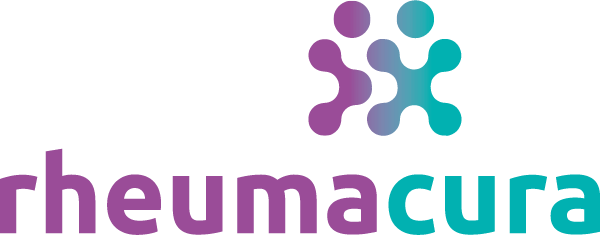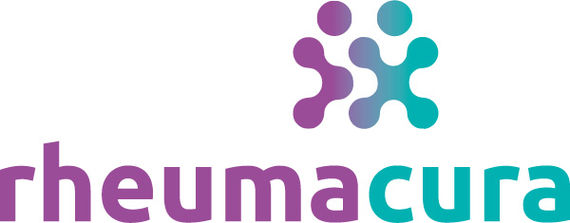Projects and activities
NetwOArk
RheumaCura is one of two Swiss representatives in the NetwOArk. Initiated by ReumaNederland the main aim of EU-netwOArk is to set up the European Society for Osteoarthritis (EUSOA), with the support of patients, clinicians and researchers (both from academia and industry). At least 10% to 15% of all adults aged over 60 have some degree of OA, with women much more often affected than men. Despite this prevalence and the resulting suffering and socio-economic impact, there is a staggering lack of disease-modifying therapies that can bring symptomatic relief and preserve joint function by preventing cartilage and joint degeneration and thus delaying disease progression. The initiative is supported by the EU within the framework of a Cost initiative.
Trainings for patients and researchers
Representatives of RheumaCura are part of the teaching teams for the EUPATI Switzerland patient training course which is hosted by the Basel University. The Swiss Federal Technical University ETH also offers a CAS course in Modern concepts in clinical research including introducing researchers to patient involvement, where Judith Safford is teaching.
PPI Matching Platform
In 2023, the Federal Quality Commission (EQC) launched a call for tenders for a platform to promote the involvement of patients, relatives and the general public in the healthcare system with information, training and networking opportunities. The EQK is an independent extra-parliamentary commission. It supports the Federal Council in the development of quality in the provision of medical services within the framework of the Federal Health Insurance Act. Various groups have been formed and have applied. The award was made to a proposal led by the SPO (Swiss Patients' Organisation). RheumaCura President Judith Safford has been nominated as a member of the project's scientific committee.
SCTO Working Group
The Swiss Clinical Trial Organisation (SCTO) is a national research infrastructure and an academic reference institution for high-quality patient-oriented clinical research in Switzerland. Since 2017, the SCTO has been a research infrastructure of national importance funded by the State Secretariat for Education, Research and Innovation (SERI) and the Swiss National Science Foundation (SNSF).
In 2021, it formed a working group to create a mapping of Patient and Public Involvement (PPI) in Switzerland, as well as to lead the dialogue and advocate for the implementation and promotion of PPI in academic clinical research. The working group has created numerous resources to facilitate PPI for researchers. RheumaCura has been an active member of the SCTO working group since the beginning of this initiative.
Projekt PrePaC - Prevention of Pain Chronification
The national PrePac project aims to support people with acute pain so that they can continue to participate in social life and their pain does not become chronic.
Led by the Inselspital Bern with an interdisciplinary team of physiotherapists, occupational therapists, social workers, doctors and psychologists and with patient involvement, the project pursues a holistic approach. A biopsychosocial model of illness is at the centre of the project, which includes social factors as well as biological, physical, and psychological factors. The possibilities for preventing chronic pain derived from this are implemented in a health pathway.
The project, which is organised with various professional groups and disciplines (interprofessional and interdisciplinary), also includes educational work and the promotion of health literacy, participation by those affected and the establishment of a broad-based network. RheumaCura Foundation is an active partner in the project consortium.
How to find out what matters most to patients with rheumatic and musculoskeletal diseases?
To answer this question, we hope to work with the James Lind Alliance (JLA) initiative and conduct the first project with them in Switzerland.
The JLA is a British non-profit initiative, established in 2004. It brings patients, carers and clinicians together in Priority Setting Partnerships (PSPs) to identify and prioritise evidence uncertainties or unanswered questions they would like answered by research.
Evidence uncertainties are questions about healthcare that cannot be answered by existing research. These might be questions about particular treatment options, methods of care, or diagnostic tests.
Therefore, PSPs aim to address the mismatch between what researchers choose to research, or funders support, and what patients, carers and health professionals actually want to know. They provide an important and valuable opportunity for patients, as the end users of research, to help shape the research agenda.
Our work will raise awareness of what really matters to the people who are affected by disease and illness in their everyday lives.
Literature and links
Learning about rheumatic and musculoskeletal diseases
There are endless sources of information on the internet – but which are reliable and understandable to laypersons? As a first source we recommend the patient associations of the disorder you are interested in. These are listed below.
The Rheumaliga has an A-Z of rheumatic disorders in French and German and is the leading patient organisation in Switzerland for all rheumatic and musculoskeletal disorders.
The UK research charity Versus Arthritis also has an A-Z of rheumatic and musculoskeletal disorders in English.
Patient Associations
If you need support as a sufferer, or a carer, it is best to get advice from a patient organisation.
The leading organisation for all rheumatic and musculoskeletal diseases is the Rheumaliga. It provides advice, offers courses and organises events, helps you to find specialist support and publishes much helpful information. It is organised in regional groups covering the whole of Switzerland.
The Swiss Association Morbus Bechterew is the patient association for Spondyloarthritis. It also runs the website Rheumafit. This is the first online platform in Switzerland with exercise videos for Spondyloarthritis and other rheumatic diseases.
The Swiss Polyarthritis Association (SPV) is a nationwide patient organisation of people living with rheumatoid arthritis (RA) or related conditions.
Lupus suisse is a patient organisation for lupus erythematosus patients. In addition to lupus patients, members also include other collagenosis patients, relatives and doctors.
The Swiss Fibromyalgia Association gives help and support those affected and their families, publishes information and raises public awareness of the disease, stimulates medical and pharmaceutical research to improve treatment methods.
The Swiss Osteogenesis Imperfecta Association (SVOI) aims to unite people affected by osteogenesis imperfecta (brittle bone disease) and their relatives and to promote their interests.
The Swiss Association of Scleroderma Patients is a national organisation for patients who suffer from scleroderma or a related disease.
The Swiss Psoriasis and Vitiligo Society (SPVG) provides information on issues related to psoriasis and vitiligo, promotes cooperation, represents the interests of its members, promotes regional groups and activities.
VASAS (VASculitis Association Switzerland) connects people suffering from Takayasu Arteritis (TAK), Giant Cell Arteritis (RZA) or ANCA Vasculitis (AAV), their relatives and caregivers, as well as people who are professionally and/or personally interested in these diseases.
Citizen Science and Patient involvement
The Citizen Science Center Zurich is run jointly by the University of Zurich and ETH Zurich. The mission of the Center is to support and promote the collaboration of academic scientists and the general public to implement co-created Citizen Science projects.
The organisation Was Habe Ich helps patients to understand their medical reports. It is a volunteer online service offered by hundreds of medical professionals free of charge. The objective is to improve communication between patients and doctors and thus improve health care.
Easy Access Medical Literature
The British Medical Journal (BMJ) publishes many resources about working with patients to improve healthcare and has a strong strategy to promote patient-centred content. In particular the BMJ Opinion Patient Perspective series features articles written from the viewpoint of patients.
The patient research library offers data, research results and reports, with a focus on the UK.
Recommended scientific literature on Patient engagement in healthcare and medical research
SCTO (Swiss Clinical Trials Organisation) has published an overview of patient participation in Switzerland: Regulatory Affairs Watch, Issue 6, 28 October 2021 "Bringing patients' and the public's voices into human research" Link zur Website.
Boivin, Antoine; L'Espérance, Audrey; Gauvin, François-Pierre; Dumez, Vincent; Macaulay, Ann C.; Lehoux, Pascale; Abelson, Julia (December 2018). "Patient and public engagement in research and health system decision making: A systematic review of evaluation tools". Health Expectations. 21 (6): 1075–1084. doi:10.1111/hex.12804. PMC 6250878. PMID 30062858
Maarten de Wit, Cyrus Cooper, Jean-Yves Reginster, on behalf of the WHO-ESCEO Working Group Practical guidance for patient-centred health research, The Lancet, Volume 393, ISSUE 10176, P1095-1096, March 16, 2019, DOI https://doi.org/10.1016/S0140-6736(19)30034-0


